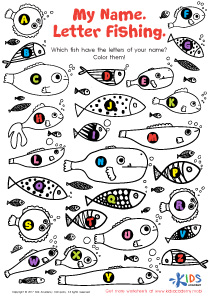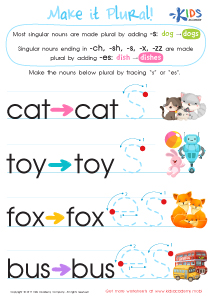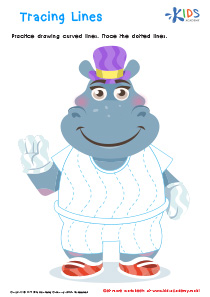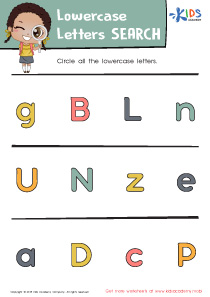Letter recognition Easy Phonics Worksheets for Ages 4-6
4 filtered results
-
From - To
Introduce your young learners to the joy of reading with our "Letter Recognition Easy Phonics Worksheets for Ages 4-6". These carefully crafted resources from Kids Academy offer engaging activities focused on identifying and learning letters. Perfect for preschool and kindergarten kids, our worksheets combine fun illustrations with effective educational techniques. Designed to enhance early literacy skills, each worksheet helps build a strong foundation in phonics. Boost your child's confidence and set them on a path to reading success with these easy, printable resources available to download for free! Ideal for parents and teachers aiming to make learning enjoyable and effective.
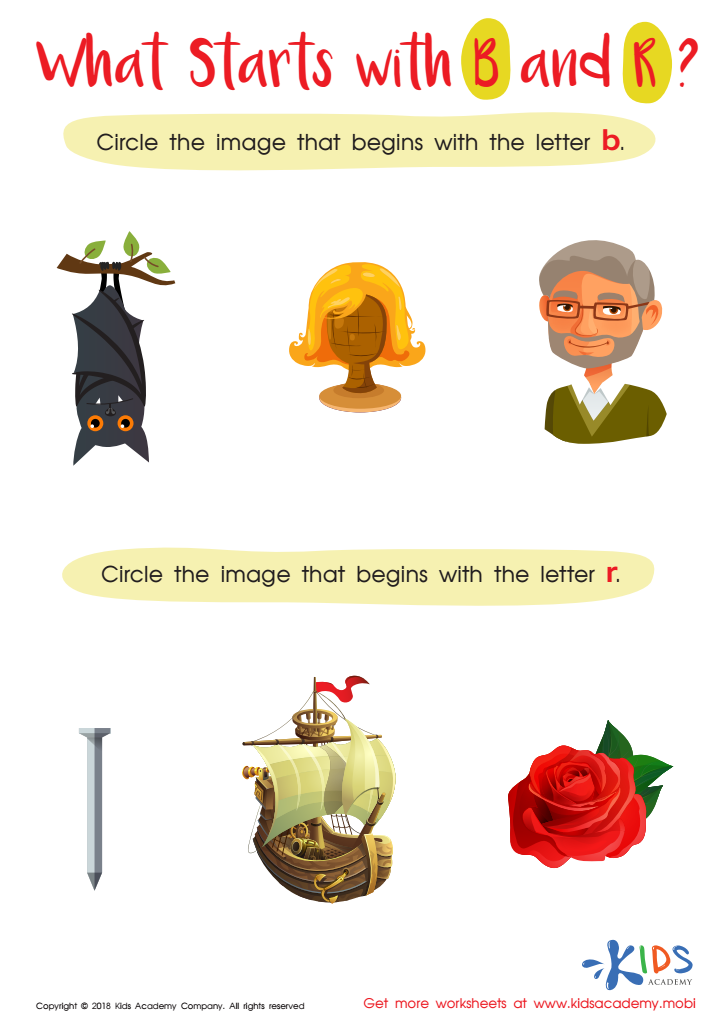

What Starts with B and R? Worksheet
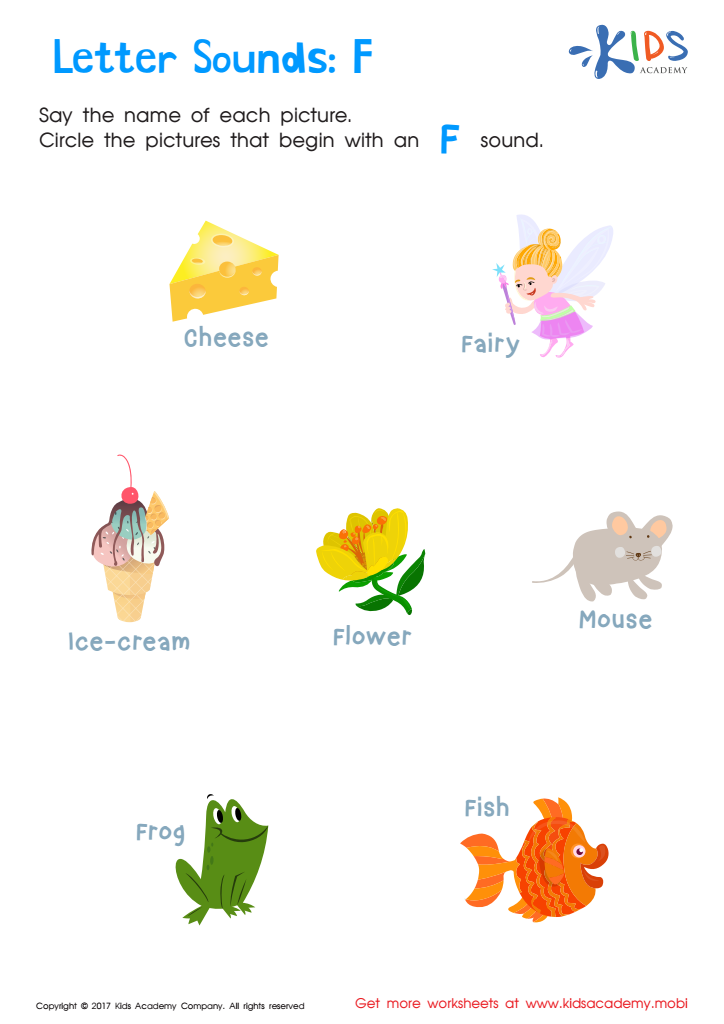

Letter F Sounds Worksheet
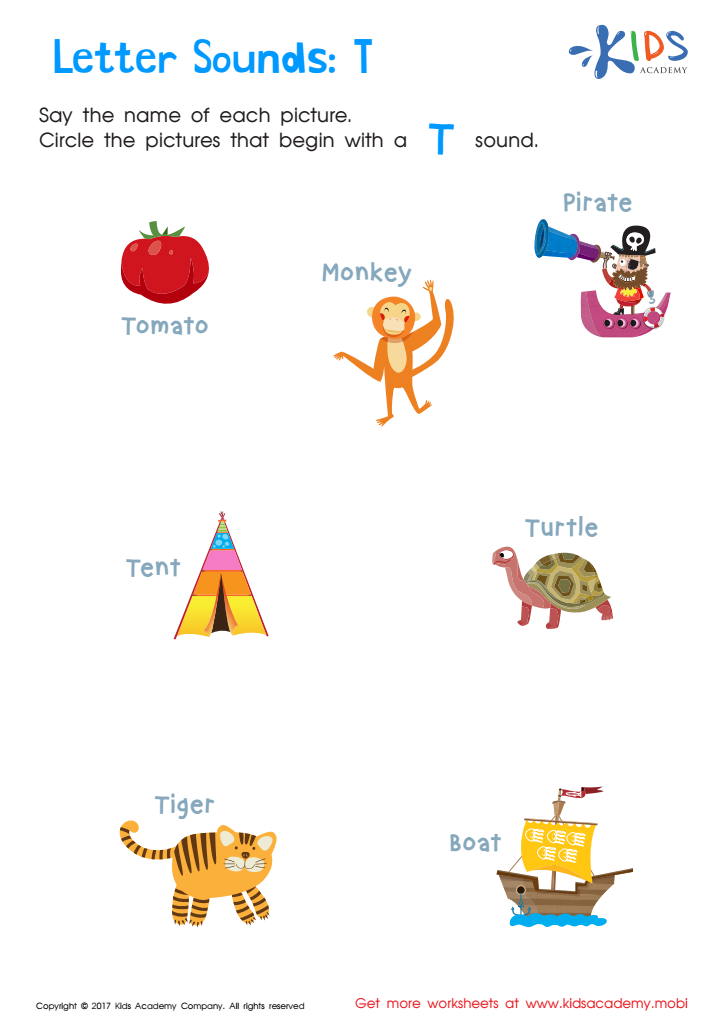

Letter T Sounds Worksheet
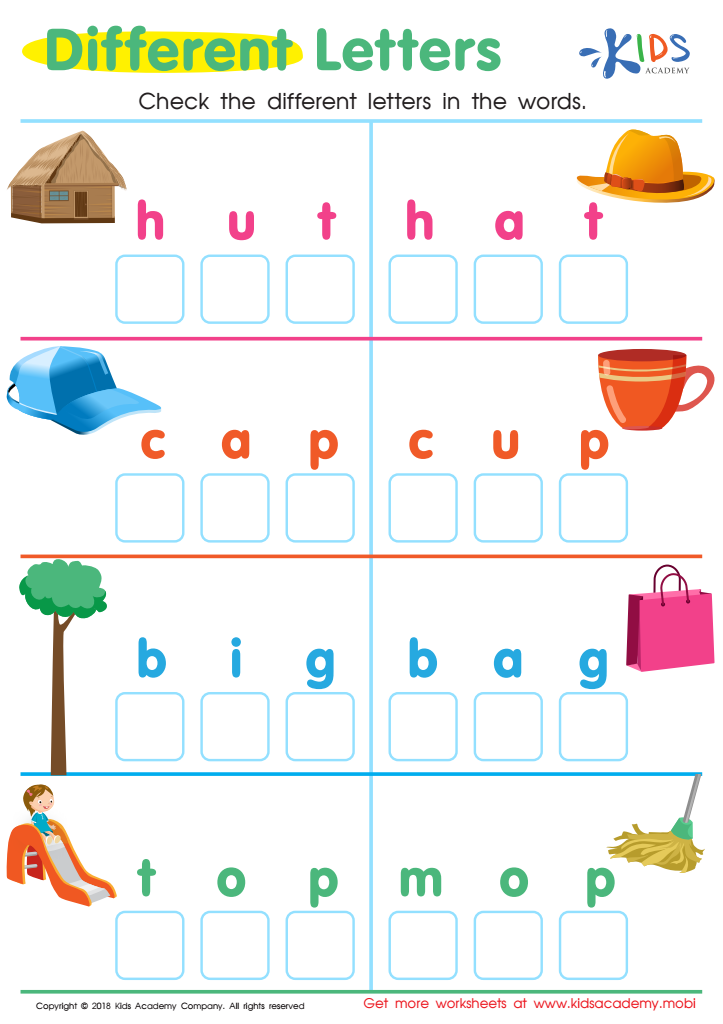

Different Letters Reading Worksheet
Letter recognition and early phonics for children aged 4-6 form the bedrock of reading and literacy skills, which are crucial for academic success and daily life. These skills refer to the ability to identify letters by their shapes and sounds, and to connect letters with the sounds they represent—basic elements of reading any language, including English.
Parents and teachers should care about letter recognition and phonics because they foster essential early literacy skills that pave the way for more advanced reading and writing tasks. These skills decrease the difficulty children face when transitioning to full reading and help prevent reading difficulties later in life. Children who can recognize letters and understand basic phonics can start connecting letters together into simple words, boosting their confidence and encouraging a positive relationship with reading.
There is robust evidence showing that children with solid early literacy skills are more likely to perform well in school and experience greater academic success later on. Furthermore, early literacy skills are linked to better social skills, self-expression, and cognitive development.
Providing children with tools such as Letter recognition Easy Phonics can make learning engaging and fun, helping to motivate young learners. In summary, giving attention to these early literacy skills sets a strong foundation for lifelong learning and development.

 Assign to My Students
Assign to My Students










